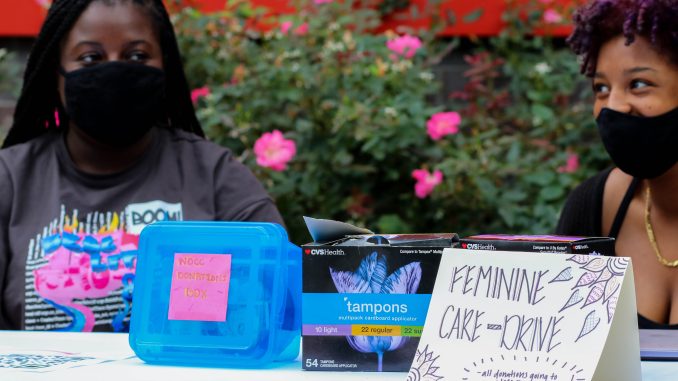
Women of Color Creatives want women of all backgrounds to be heard and represented.
”We want to empower and bridge purposeful connections for women of color within the Temple community, and also like in the Greater Philadelphia area,” said Celeste Rubino, a senior music education major and vice president of WoCC.
WoCC was founded in 2019 by Taylor Sanders, a senior art history major, and works to empower women by hosting events that encourage artistic freedom and open discussion of often glossed over issues like race, inequality, representation and feminine hygiene. Sanders created WoCC because she felt many clubs and organizations on campus did not provide spaces for students of all races, cultures and backgrounds to come together in one place and relate.
Although founded in 2019, the COVID-19 pandemic created challenges for WoCC because they had to rely on virtual methods like Zoom meetings and social media to raise awareness about their organization and get students involved.
Now that clubs and organizations are able to meet in-person again, WoCC is getting involved with outreach organizations in the Greater Philadelphia area to expand their own organization and host more events to get students involved, Rubino said.
On Friday, Oct. 8, board members from WoCC sat outside the Howard Gittis Student Center from 1 p.m. to 3 p.m. during their feminine care drive event, while Rubino played the ukelele and sang and members shouted, “Feminine Care Drive.”
WoCC received both feminine care supplies and monetary donations from students and faculty, which they plan to donate to a local women’s organization in hopes of supporting women’s health.
“There’s a stigma around periods and our menstruation, which is not fair because it’s like a natural thing that we all have to do,” said Taylor Smith, a junior advertising major and community service chair of WoCC.
Although a monthly necessity for women, feminine products are difficult to afford and access, especially for those experiencing homelessness. In the United States, 30 states have a tax on period solutions because they are considered “nonessential” goods, according to a period poverty research study conducted by Regis College.
The average woman spends about $20 on feminine hygiene products per cycle, totaling to about $18,000 during her lifetime, according to the National Organization for Women, an organization that advocates for women’s rights, according to their website.
While some women may not think twice about spending $20 a month on feminine products, those with limited access to shelter or income might, according to NOW.
Although the Coronavirus Aid, Relief, and Economic Security Act made period products classified as medical expenses and eligible for purchase with flexible spending or health savings accounts, uninsured individuals cannot access this benefit, making it more difficult for those without shelter or steady income to access these monthly necessities, according to Children’s Hospital of Philadelphia.
“It’s expensive,” Rubino said. “Being homeless in itself is something that makes it more hard because, it’s like, for people who can afford to get the feminine care products, it’s already kind of rough, because, you know, why should we be taxed for something that our bodies naturally do?”
WoCC hopes their efforts will bring change and awareness to the lack of accessibility of feminine care products. Gaining free or affordable access to these products will allow more women to confidently navigate their lives and progress in the world, said Julia Wynn, a senior marketing major and social media chair for WoCC.
“It all boils down to helping in any way that you can as an individual, because when you get together with people, that compounds, and then the impact is big,” Rubino said.
Correction: A previous version of this story misattributed a quote from Taylor Sanders.


Be the first to comment